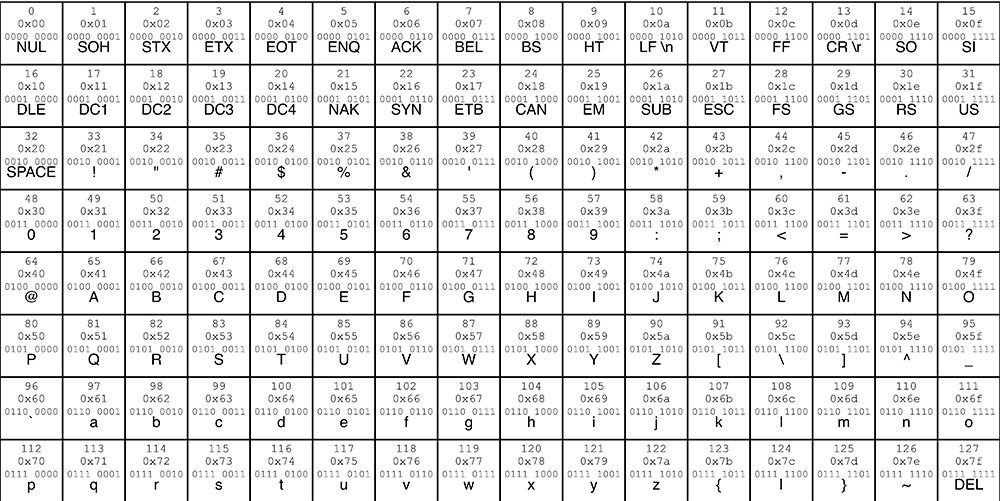ASCII (American Standard Code for Information Interchange) is a character encoding standard used to represent text in computers and other devices that process text. ASCII assigns a unique numerical code to 128 characters, including letters, digits, punctuation marks, control characters (like new lines or carriage returns), and special symbols. Each character is represented by a 7-bit binary number, allowing for a range from 0 to 127.

ASCII was developed in the early 1960s and became widely adopted as a standard for data exchange between computers. It is the foundation for later character encodings, including UTF-8, which extends ASCII to accommodate more characters from different languages and symbols beyond the original 128